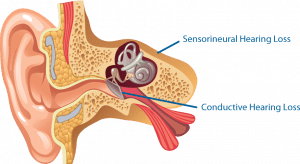Ten Signs of Hearing Loss
Do you think you might be losing your hearing? Or perhaps you’ve noticed that a loved one is struggling to hear.
Hearing loss can occur for a number of reasons such as illness, trauma, medication or natural deterioration. We can probably all relate to walking into a family members house and the TV is blaring. Here are just a few of those things patients with a hearing loss might say.
Here are ten things that people with a hearing loss might say:
” I have to ask people to repeat what they are saying”
” My daughter says the TV is too loud”.
” I can’t hear the phone or doorbell ringing”.
“I have to lean in to hear what is being said, especially when there is a lot going on”.
” I can hear better when i can see your face and lips”.
“I can’t hear ‘s’ or ‘sh’ sounds as clearly”.
“I can hear, I just have selective hearing”.
” I struggle to hear the beginning and ends of sentences and words”.
“I struggle to hear when the family are together, particularly when we have a family meal”.
” I am more tired by the end of the day”.
So what might be happening in the ear?
There are three different classifications of hearing loss: sensorineural, conductive and mixed hearing loss.
Sensorineural Hearing Loss
An example of sensorineural loss is ageing where the nerves in our inner ear stop responding to certain sounds, particularly high-frequency ones, and that is why as you get older, a sign of hearing loss is that you might struggle to hear birds singing. This type of hearing loss is irreversible and if you suspect this is the case, the main method of restoration is to first have a hearing assessment and try a digital hearing aid.
Conductive Hearing Loss
Conductive hearing losses occur when there is a blockage of sound, for example, due to impacted wax (though the reduction in hearing from wax is usually small), or you may have suffered from a lot of infections as a child which has resulted in a perforated eardrum. The eardrum acts as a loudspeaker, bouncing back and forth in response to sound and a perforation means that sound has to be much louder to get through to the inner ear. If you have a perforated eardrum surgical repair may be possible, even if you are still experiencing recurrent ear infections. If surgery is not suitable for you and you don’t have active discharge then you may be suitable for a hearing aid.
Mixed Hearing Loss
A mixed hearing loss is a combination of sensorineural and conductive, so both the nerves and structure have been damaged, for example, if you are a musician and you regularly play music without ear protection, this can result in a sensorineural hearing loss due to noise exposure and if one day you stand very close to a speaker and there is a sudden burst of sound, like that of a firearm, this could cause a perforated eardrum resulting in a mixed hearing loss.

